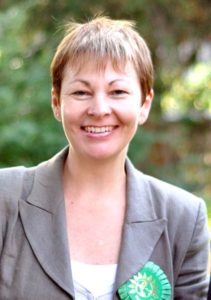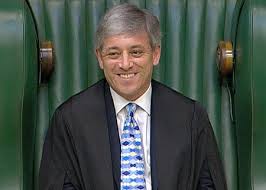Brighton Pavilion MP Caroline Lucas and Brighton-born peer Jenny Jones are calling for a change in the law to protect them from spying.
A tribunal told them yesterday (Wednesday 14 October) that they had no right to think that they were exempt from having their communications monitored.
The pair had relied on assurances given by every Prime Minister from Harold Wilson that parliamentary communications would not be intercepted. This is known as the Wilson doctrine.

The Green MP brought the case along with the Green peer Baroness Jones of Moulsecoomb (Jenny Jones) and the former MP George Galloway.
She took the Security Service (MI5), the Secret Intelligence Service (MI6), the Government Communications Headquarters (GCHQ), the Home Secretary and the Foreign Secretary to the Investigatory Powers Tribunal.
They were prompted by CIA fugitive Edward Snowden’s revelations about the security services’ blanket surveillance of electronic communications data, known as the Tempora programme.
The tribunal’s judgment said: “We are satisfied that the Wilson doctrine is not enforceable in English law by the claimants or other MPs or peers by way of legitimate expectation.”
The judgment was given by the tribunal’s president Mr Justice Burton (Sir Michael Burton), sitting with its vice-president Mr Justice Mitting (Sir John Mitting), Robert Seabrook, Geoffrey Rivlin and Sir Richard Mclaughlin.
They described the assurance as “a political statement in a political context, encompassing the ambiguity that is sometimes to be found in political statements”.
Caroline Lucas said that, according to lawyers, this now meant that there was no enforceable protection in law for constituents and whistleblowers who wanted to communicate confidentially with Members of Parliament.
She and Baroness Jones called on the government to include specific protections for MPs and peers in upcoming legislation on surveillance.
Caroline Lucas said: “This judgment is a body blow for parliamentary democracy.

“My constituents have a right to know that their communications with me aren’t subject to blanket surveillance yet this ruling suggests that they have no such protection.
“Parliamentarians must be a trusted source for whistleblowers and those wishing to challenge the actions of the government.
“That’s why upcoming legislation on surveillance must include a provision to protect the communications of MPs, peers, MSPs (Members of the Scottish Parliament), AMs (Assembly Members) and MEPs (Members of the European Parliament) from extra-judicial spying.”
She also criticised the Prime Minister for being “deliberately ambiguous” on the Wilson doctrine, noting that his own government ministers have stated as recently as this week that protection from blanket surveillance does still apply to parliamentarians.
She said: “The Prime Minister has been deliberately ambiguous on this issue, showing utter disregard for the privacy of those wanting to contact parliamentarians.”
Baroness Jones said: “As parliamentarians who often speak to whistleblowers – from campaigners whose groups have been infiltrated by the police to those exposing corruption in government departments – this judgment is deeply worrying.
“Our job is to hold the executive to account and to do that effectively it’s crucial that people feel they can contact us without their communications being monitored.
“In a democracy there is absolutely no excuse for people who contact parliamentarians to be subject to blanket surveillance by the security services.”

The pair said that they were not demanding that politicians’ communications should be entirely free from monitoring.
In some cases, for example, grave misconduct in public office, they should indeed be investigated.
But, the pair said, there should be proper judicial oversight to ensure that judges sign off any surveillance that takes place.
Their lawyers Leigh Day claimed that the surveillance of their communications was unlawful as it was a breach of the Wilson doctrine and parliamentary privilege.
Rosa Curling, from Leigh Day, said: “Today’s judgment has shredded the Wilson doctrine.
“Democratically elected MPs, who have for the past half century have relied upon this illusion of trust from the security services, can now be spied on legitimately by the security services.
“Members of the public can no longer be assured that their correspondence with their elected representatives, either to raise complaints about government policies or whistleblow and expose wrongdoings of the government, will not be monitored or snooped on by the government and its agencies.”
Caroline Lucas also brought up the judgment in the House of Commons as a point of order after Prime Minister’s Questions yesterday with the Speaker John Bercow.
She asked: “Can you advise us, Mr Speaker, on the best way of ensuring that the Prime Minister comes to this House and makes a statement about what he knew, and – crucially – that he brings forward legislation to ensure that the communications of MPs who are undertaking their parliamentary duties are not spied on without independent judicial approval?”
Mr Bercow said: “I fear that she flatters me and somewhat decries herself. It is not for the chair to proffer advice on this issue … I do not believe that it falls to me as Speaker to respond to such a judgment, or to provide commentary on it.
“The honourable lady asks how she can seek advance or clarification on the matter but she bobs up regularly from her place on those benches in seeking to question ministers – even the most senior – and I will be looking out for her and others.”








Oh dear – why should Empress Caroline think that her communications, or indeed those of her subjects, be exempt from being accessed by the security services?
Does she think that she can do what she likes and communicate with whoever she thinks with impunity?
IMO whistleblowers such as Edward Snowden should not accept any protection – especially those ‘clueless ideoligists’ potentially damaging the security of the country, where it should be classed as treason.
Has there been any example of a communication she has made that has been exposed by the security services?
Is there anything she is frightened of being revealed about her contacts with those in other (unfriendly) countries or other (extreme) political groups?
Or does she think that SHE can stir up as much trouble as she likes with total impunity?
Well I suppose it’s better than her whining on about mother’s names being included on marriage certificates.
Interesting that this is, or was, called the Wilson doctrine – named after the PM who destabilised by a rogue element in the security services.
http://www.theguardian.com/commentisfree/2006/mar/15/comment.labour1
We ignore or trivialise stuff like this at our peril.